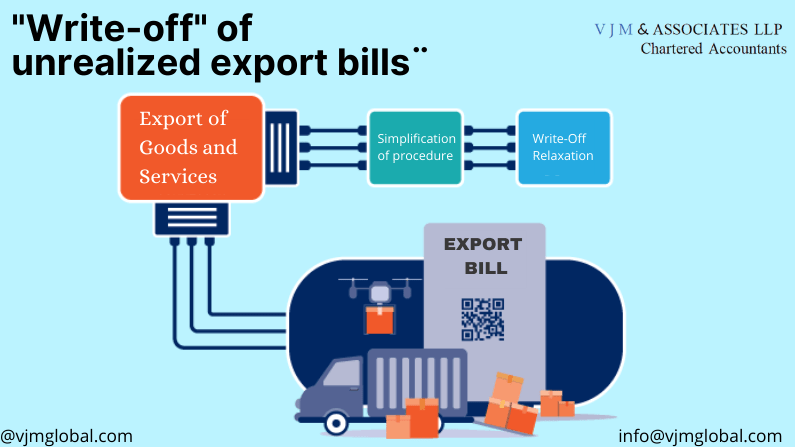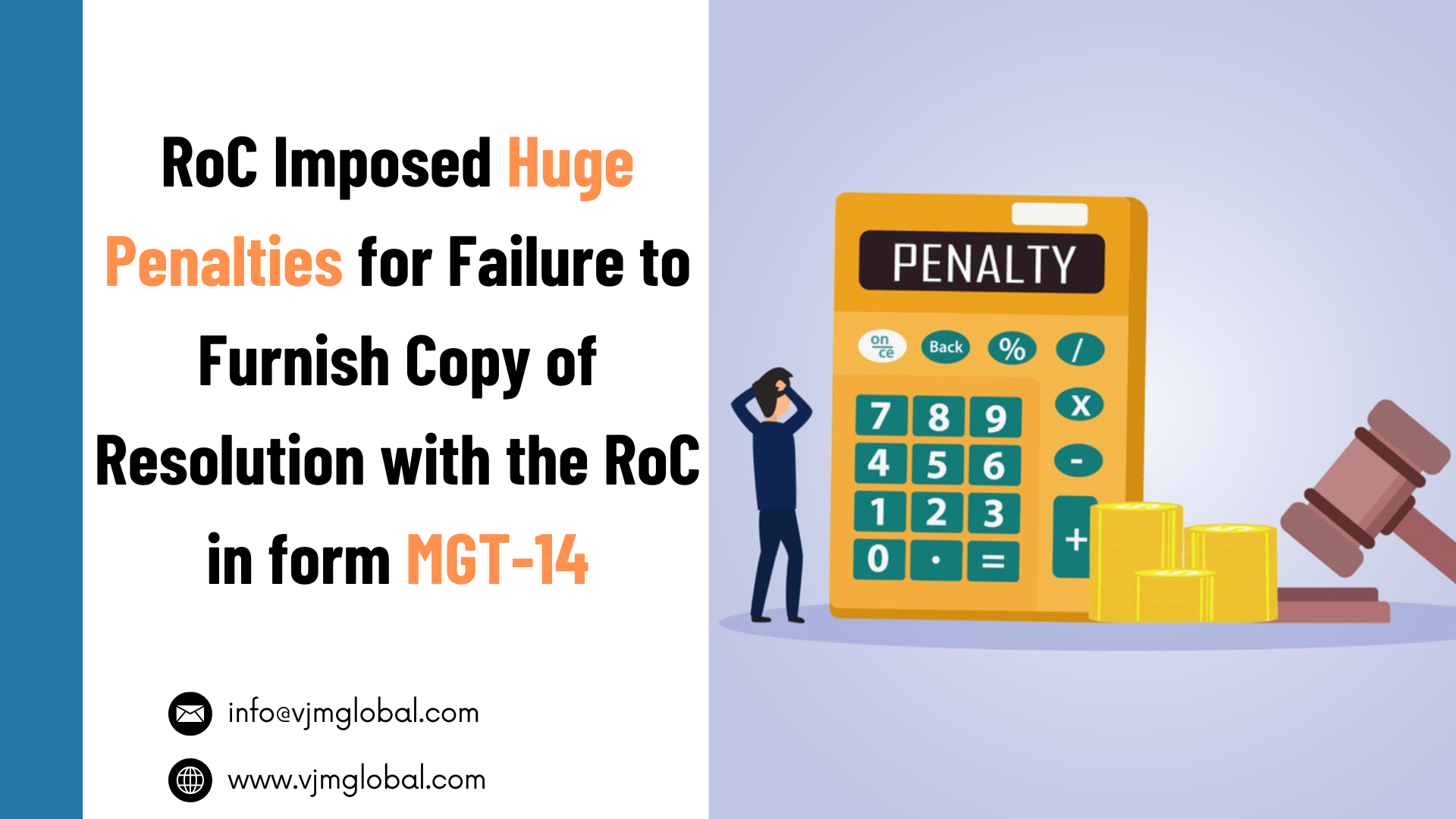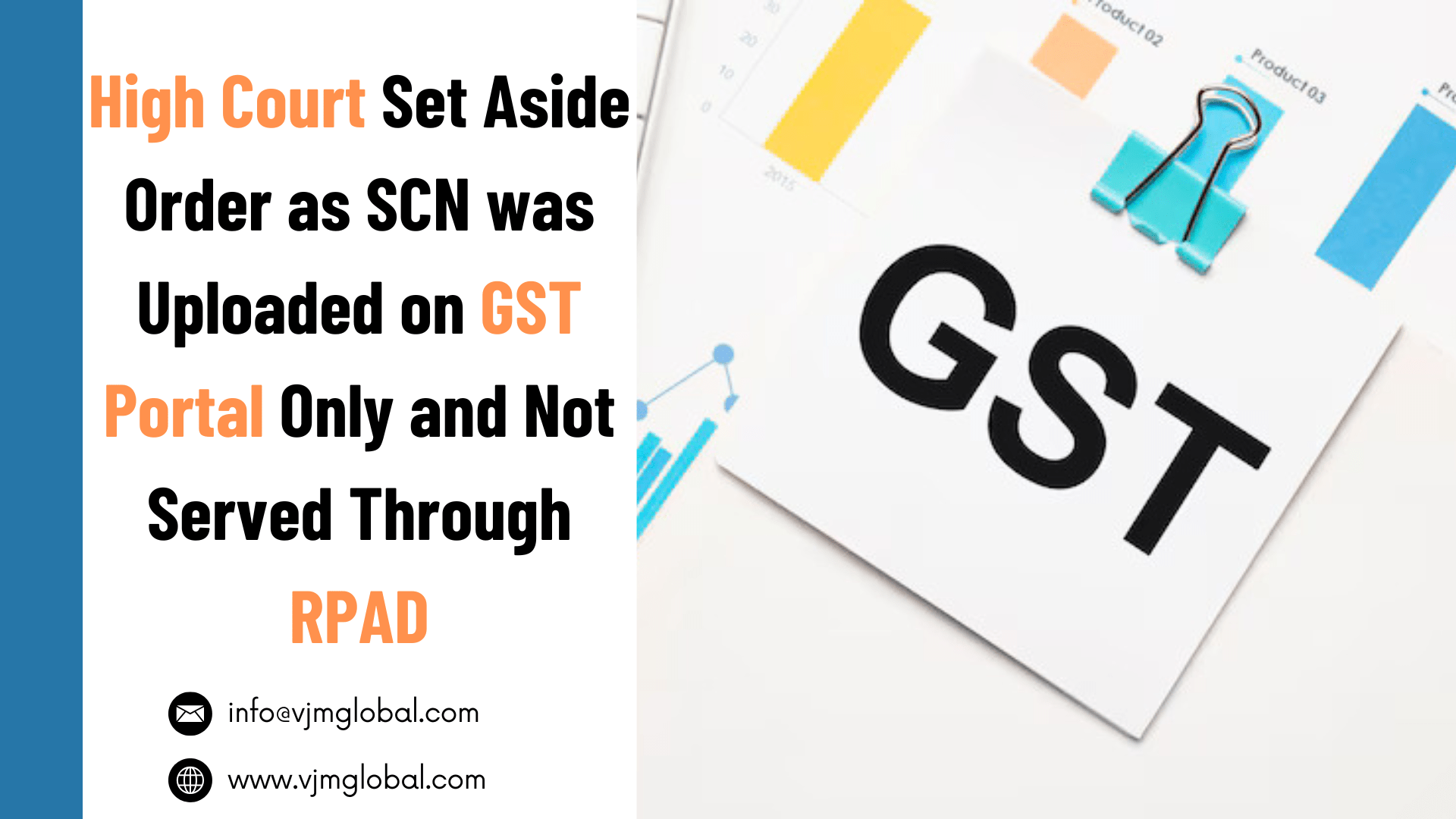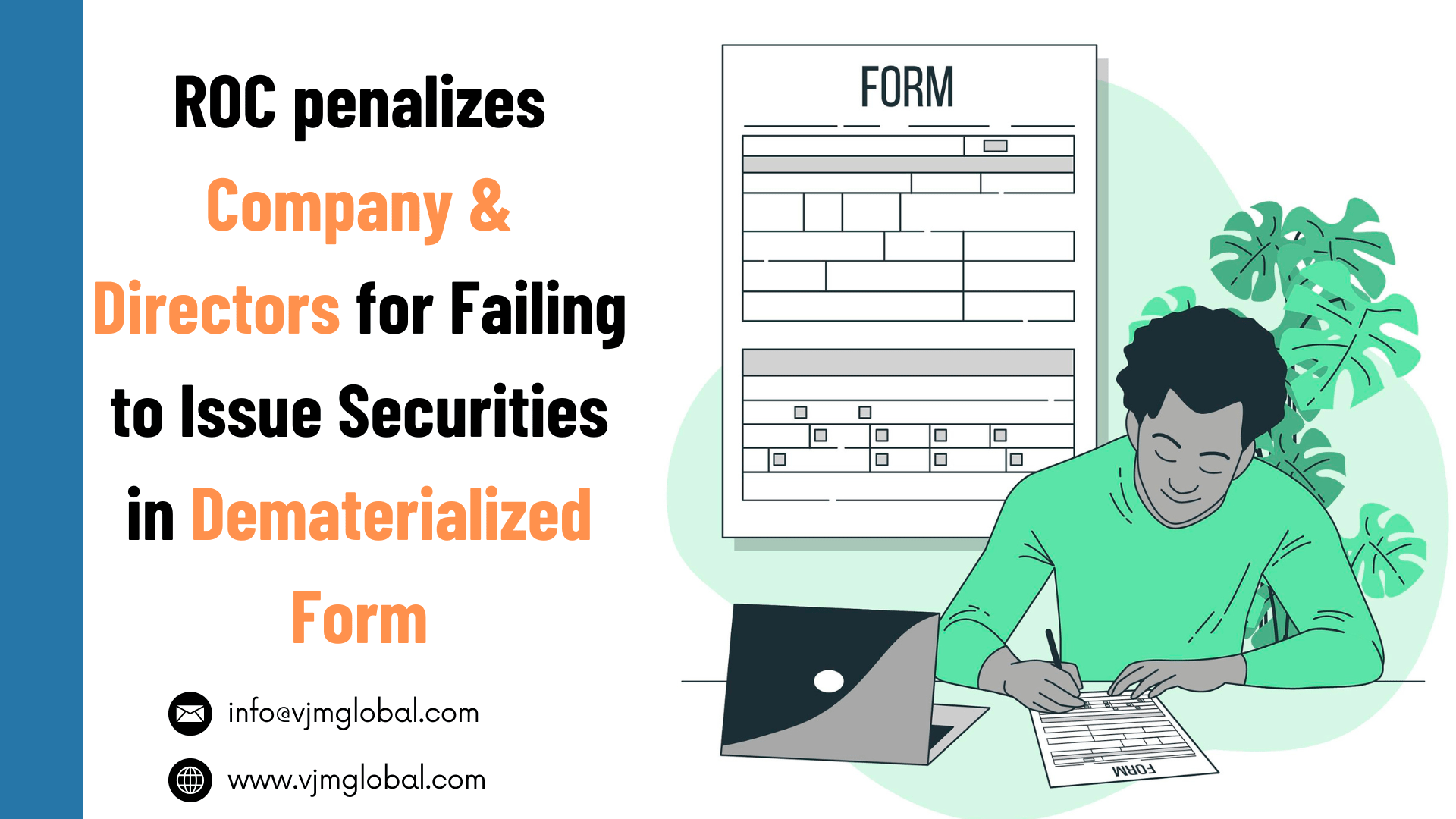Exports are available with various incentives in India such as refund of taxes paid with respect to export, various duty free scripts, Duty Drawbacks etc. However, all such incentives are available subject to realisation of consideration for export of goods or services.
Writing off amount receivables in books of accounts is permitted. However, norms are not that easy when balance with respect to export bills is to be written off. Reserve Bank of India has prescribed various rules and regulations for writing of unrealised export bills.
In this article we will discuss an elaborate insight into what a write-off is, what are the RBI and FEMA guidelines regarding unrealised export bills, Write-off relaxation, and extension of time etc..
1. What is a Write-Off of unrealised export bills?
Whenever a business carries out sale of goods or supply of services then the amount receivable against such sales is recorded as “Accounts Receivables” in books of accounts. However, in many situations, such amounts never get released due to various reasons such as insolvency of the customer, mutual dispute, fraud on part of the customer etc. In such a scenario, amount pertaining to unrealised sales invoices is required to be written off.
In case of export of goods or services, It is obligatory on the part of the exporter to realize the full consideration of exported goods or services in foreign currency within a stipulated period of time from the date of export of goods and services.
However, if any amount related to export bills becomes non-realisable then before writing off such amount the exporter is required to adhere guidelines and regulations issued by RBI relating to “Write-off” of unrealised export bills vide RBI/2012-13/435 A.P. (DIR Series) Circular No. 88 dated 12 March 2013 .
2. RBI guidelines on write-off of unrealised export bills
- In case an exporter has not been able to realize the outstanding export dues despite his/her best efforts, he/she may opt either of the following options to write off the unrealised export invoices:
- Directly approach the Authorized Dealer Category-I, who had handled the relevant shipping documents, or
- Exporter may himself-write-off the amount with appropriate supporting documentary evidence along with a request for write off of the unrealized portion.
- Write off is allowed subject to the fulfilment of stipulations regarding surrender of incentives prior to “write-off” adduced in the A.P. (DIR Series) Circular No. 03 dated 22 July 2010.
- After Liberalisation and simplification of procedure of write off, limits prescribed for ¨write-offs¨ of unrealized bills:
| Self-write-off by an exporter (Other than Status Holder Exporter) | 5%* |
| Self-write-off by Status Holder Exporters | 10%* |
| Write-off by AD (Authorized Dealer) | 10%* |
*Of the total export proceeds realized during the previous calendar year.
3. Conditions for “write-off” of Unrealised Export bills
Unrealised export invoices shall be allowed to write off subject to the following conditions:
- Specified percentage for written off shall be computed on total export proceeds realised during the previous year.
- Write off shall be allowed for such invoices which remain outstanding for more than 9 months.
- The exporter is required to provided satisfactory documentation evidence that he has made every effort to collect the dues;
- The case must fall under any of the under noted categories:
- The overseas buyer was declared bankrupt, and a certificate from the official liquidator stating that the export earnings could not be recovered was produced.
- the overseas buyer is not traceable over a reasonably long period of time.
- The commodities exported were auctioned or destroyed by the importing country’s port, customs, and health officials.
- The unrealized amount is the balance payable in a case that was settled with the help of the Indian Embassy, Foreign Chamber of Commerce, or another similar organisation.
- The unrealized amount indicates the outstanding undrawn balance of an export bill (not exceeding 10% of the invoice value) that proved unattainable despite the exporter’s best efforts.
- The cost of pursuing legal action would be disproportionate to the amount of the unrealized export bill, or if the exporter, even after winning a court battle against the foreign buyer, was unable to carry out the Court’s judgement owing to circumstances beyond his control;
- Bills were written for the difference between the letter of credit value and the actual export value, or the provisional and actual freight charges, but the amount has remained unrealized due to the foreign buyer’s failure to pay the bills, and there are no prospects for realisation.
- If any proportionate export incentives were used in relation to the related shipments, the exporter is required to surrender such incentive (for situations not covered by A. P. (DIR. Series) Circular No.03 dated July 22, 2010). Before allowing the applicable bills to be wiped off, AD Category – I banks should seek paperwork demonstrating the surrender of any export incentives received.
- In the case of self-write-off, the exporter must submit a Chartered Accountant’s certificate to the concerned AD bank indicating following details:
- export realisation in the previous calendar year,
- Amount write-off already claimed during the year, if any,
- the relevant GR / SDF Nos. to be written off;
- Bill No., invoice value, commodity exported, and country of export.
- The CA certificate may also indicate that the exporter’s export benefits, if any, have been surrendered.
4. Cases where “Write-Off” facility is not available
Following export bills shall not be allowed to be write off under this scheme:
- Exports to countries with externalisation issues, in which the overseas buyer has deposited the export value in local currency but the amount cannot be repatriated by the country’s central banking authorities.
- The Enforcement Directorate, Directorate of Revenue Intelligence, Central Bureau of Investigation, and others are investigating the EDF (export declaration form), as well as outstanding debts that are the subject of civil and criminal actions.
5. Write-off in cases of payment of claims by ECGC and private insurance companies regulated by Insurance Regulatory and Development Authority (IRDA)
- AD shall write-off the related export bills upon receipt of an application from the exporter accompanied by documentation evidence from the ECGC/private insurance companies regulated by IRDA stating that the claim in respect of the outstanding bills has been fulfilled by them.
- Such a write-off will not be limited to the 10% limit mentioned above.
- Incentives will be surrendered in accordance with the Foreign Trade Policy.
- The claims settled in rupees by the ECGC and private insurance companies regulated by the IRDA should not be interpreted as export realisation in foreign currency.
6. Write-Off Relaxation
With effect from August 27, 2009, and as indicated in the Foreign Trade Policy (FTP), 2009-14, realisation of export proceeds will not be required under any of the FTP’s Export Promotion Schemes, subject to the following conditions:
- According to current criteria, the Reserve Bank or AD Category – I bank on behalf of the Reserve Bank may authorise a write-off on merits;
- The exporter presents a document from the concerned Indian Foreign Mission attesting to the fact that the export funds were not recovered from the buyer; and
- This would not be applicable in self write off cases.
- Other than under the Duty Drawback Scheme, if availed of by the exporter via any of the Export Promotion Schemes under FTP 2009-14, AD Category – I banks are encouraged not to insist on the surrender of proportionate export incentives, subject to the fulfilment of the requirements indicated above. The drawback amount has to be recovered even if the claim is settled by the Export Credit Guarantee Corporation of India Limited (ECGC) or the write –off is allowed by the Reserve Bank.
7. Extension of Time limit of realisation of export proceeds
- The Reserve Bank of India has given AD Category – I banks permission to prolong the term of realisation of export proceeds beyond 9 months from the date of export for up to six months at a time, regardless of the invoice value of the export, subject to the following conditions:
- The Directorate of Enforcement / Central Bureau of Investigation, as well as other investigating agencies, are not looking into the export transactions covered by the invoices.
- The AD Category – I bank is convinced that the exporter was unable to obtain export earnings due to circumstances beyond his control.
- The exporter certifies that the export proceeds will be realised over the extended period of time.
- When seeking an extension beyond 9 months from the date of export, the exporter’s total outstanding must not exceed USD one million or 10% of the average export realisations for the previous three financial years, whichever is greater.
- The XOS statement should include all outstanding export invoices that are more than six months old from the date of export. Where an AD Category – I bank has granted a time extension, the date up to which the extension was granted may be stated in the ‘Remarks’ column.
- Extensions may be granted in circumstances when the exporter has filed litigation against the buyer in another country, regardless of the amount involved or unpaid.
- When an exporter has been unable to realise the proceeds of a cargo made during the extended term due to circumstances beyond his control, but expects to be able to do so if a further extension of the period is granted. In addition, in circumstances not covered by subparagraph (i) an application (in duplicate) should be sent to the Reserve Bank’s Regional Office concerned in form ETX through his AD Category – I bank, accompanied by suitable documentary evidence.













